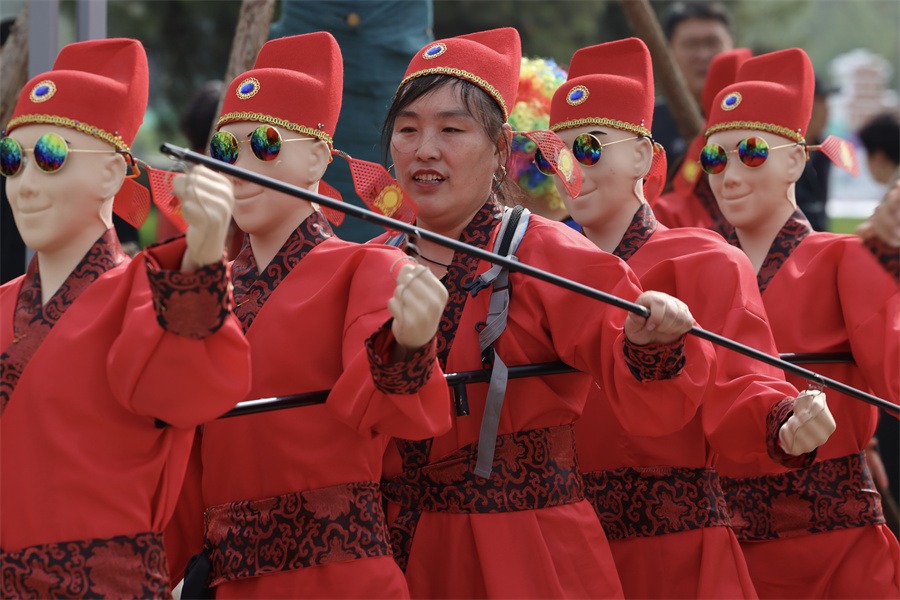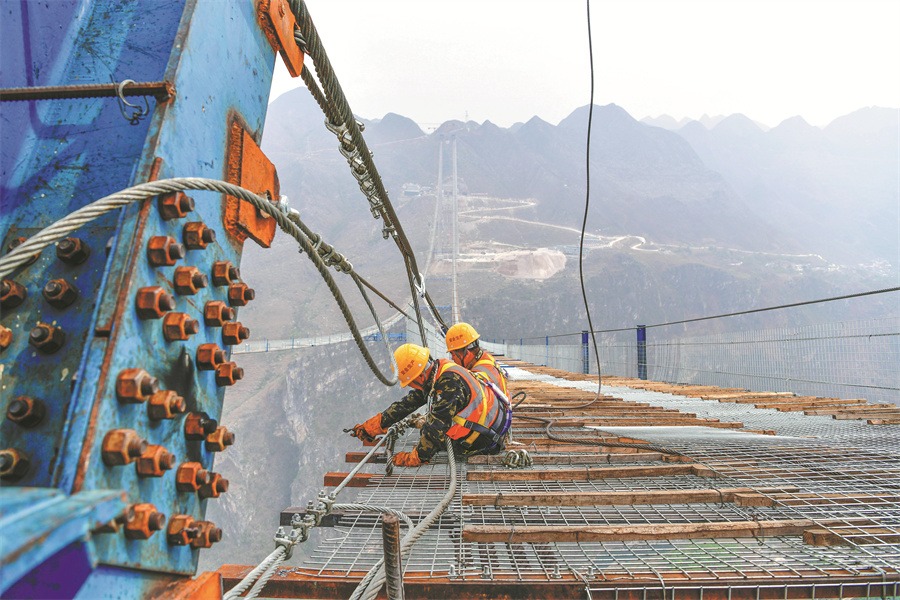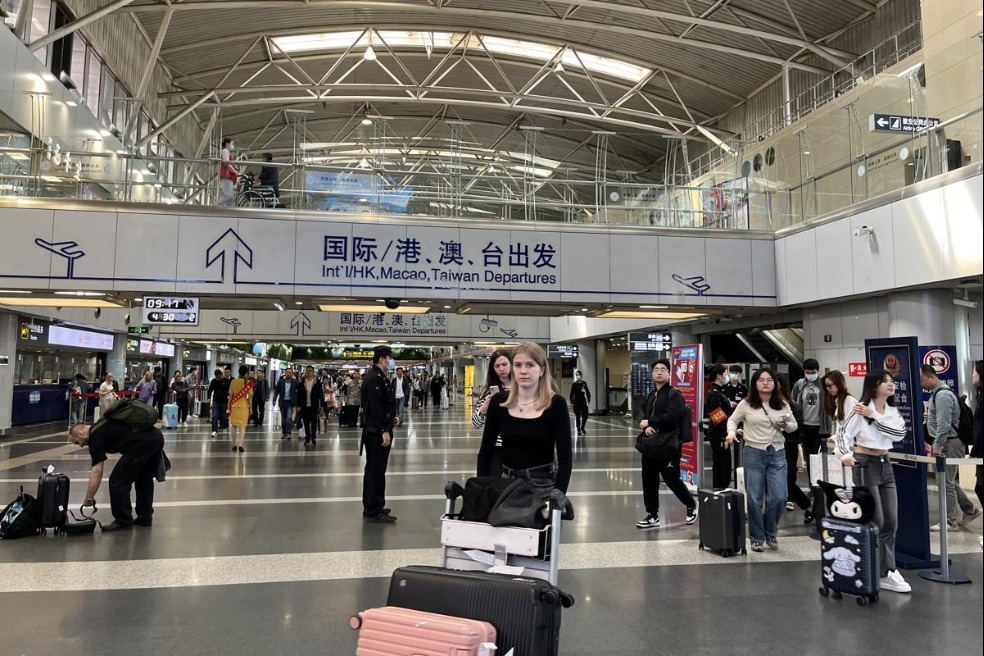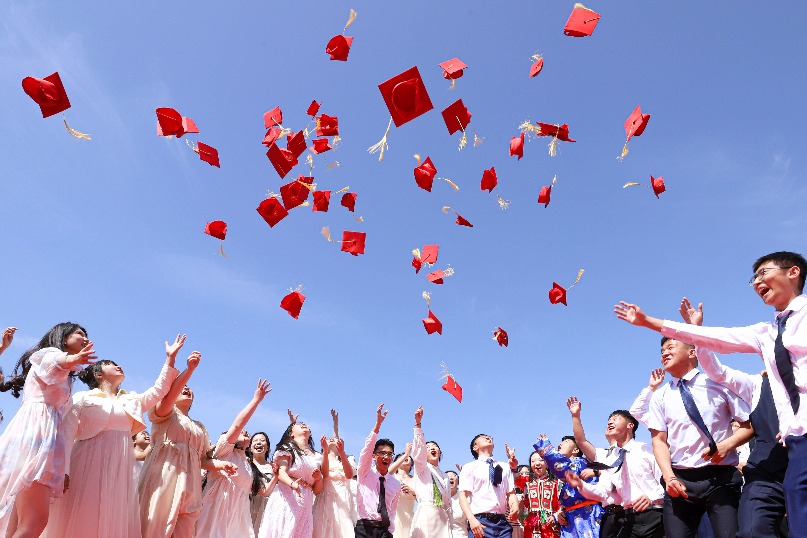Lam: Judicial independence not affected

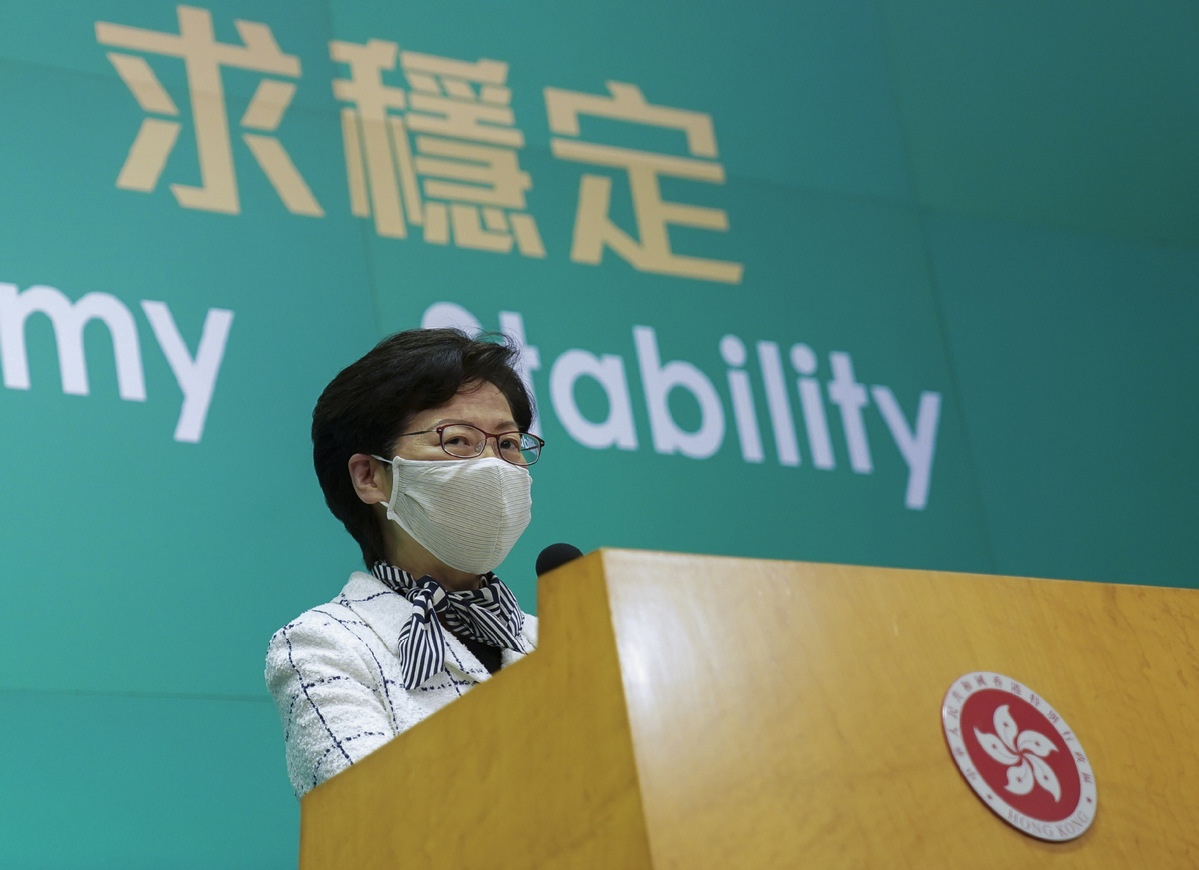
Proposed national security law will not impair high degree of autonomy in HKSAR
Hong Kong Chief Executive Carrie Lam Cheng Yuet-ngor stressed on Tuesday that the proposed national security law won't impair the special administrative region's judicial independence and high degree of autonomy.
Addressing the media before the weekly Executive Council meeting, she said the draft law has not conferred on her the power to appoint a specific judge for any particular national security case. It will be up to the judiciary to decide, as usual, Lam said.
According to the draft law, the chief executive has the power to choose a group of judges to adjudicate national security cases.
There are many foreign judges in the city's judiciary and there are no particular restrictions on judges being designated by the chief executive to adjudicate national security cases, Lam said.
In many countries, foreign judges are not allowed to sit on the bench, let alone deal with national security-related cases, she said.
"The draft national security law for Hong Kong makes no mention of the issue of the judges' nationalities. I believe it embodies the central government's high degree of respect and trust in the city's judicial system."
Lam rebutted the suggestion that the practice of the chief executive choosing judges will interfere with Hong Kong's judicial independence since the chief executive is the leader of the administrative body as well as the head of the SAR.
It's a common practice to designate a group of judges over certain types of cases not just in Hong Kong but in many other places around the globe, she said. This doesn't impair the SAR's judicial independence, she said, calling those who oppose the idea ignorant.
Lam stressed that SAR judges are appointed on the basis of their judicial and professional qualities, and she has full trust and confidence in each of them should they be appointed to adjudicate national security cases.
She also reiterated that the proposed national security legislation doesn't violate the "one country, two systems" principle or the Basic Law.
It is to improve relevant systems and mechanisms to better safeguard "one country" under the "one country, two systems" principle, Lam said. If "one country" is undermined by people who try to endanger national security, the foundation of "two systems" will also be shaken, she added.
Those who still think the legislation is undermining "one country, two systems" are people who never truly accepted or respected the concept of "one country", Lam said.
Also on Tuesday, the Legislative Affairs Commission of the National People's Congress Standing Committee held 12 seminars in Hong Kong to solicit opinions from various local sectors on the draft law.
The commission, together with the Hong Kong and Macao Affairs Office of the State Council and the Liaison Office of the Central People's Government in the HKSAR, heard suggestions from 120 representatives from Hong Kong's political, legal, business, financial, educational, technological, cultural and religious communities as well as social organizations and regional groups.
Participants unanimously expressed support for the draft law and said the enactment of the law would fix legal loopholes and the lack of sufficient enforcement systems in safeguarding national security in the HKSAR.
It would help maintain Hong Kong's long-term prosperity and stability and ensure the smooth course of the "one country, two systems "principle, they said, adding that they hope the law will be promulgated and take effect as soon as possible.
Protecting residents
While attending the seminars, officials and legislators from the central government said that the legislation will strictly follow the "one country, two systems" principle and will take into account the needs and requirements for safeguarding national security, the differences between the two legal systems and Hong Kong's present situation.
The legislation will not only be in line with the Constitution, the Basic Law and other national laws that protect national security, but also be compatible with and complementary to Hong Kong's existing legal system.
To ensure that the law is effectively implemented in the HKSAR, it is indispensable for the central government to retain jurisdiction over certain criminal cases that seriously endanger national security under specific circumstances, they said.
The legislation will target only a very few people who threaten national security and will protect the majority of Hong Kong residents, they added.
Zhang Yangfei contributed to this story.
- Chinese satellite detects over 100 solar white-light flares
- Parents of Tsinghua student poisoned in 1994 call for fresh investigation
- 1.07 billion people in basic pension scheme
- China's new jobs boom fueled by tech and personalization
- Tougher line urged toward juvenile crime
- Stronger ties a boost for China-EU relations
















